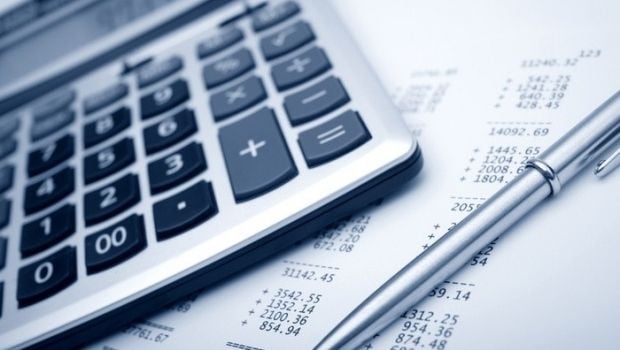
Week’s balance: IMF tranche, fine for Gazprom, and fall of hryvnia
Ukraine in February, will receive $1.7 billion from the IMF, the Antimonopoly Committee fined Russia’s Gazprom a record $3.4 billion, the experts analyze the reasons for the fall of the hryvnia, and the prime minister spoke again on the fight against corruption - these are the main economic news of the past week.
Ukraine will receive $1.7 billion from the IMF in February, said Ukrainian President Petro Poroshenko after a meeting with IMF Managing Director Christine Lagarde at the summit in Davos, the world’s largest annual economic get-together.
Lagarde, whose term as IMF governor is coming to an end this year, has supported Ukrainian reforms and expressed hope for a positive outcome of the soon-to-be-held meeting of the Fund’s Board of Directors on the allocation of the next tranche of macro-financial assistance to Ukraine.
This is probably the most important news of the past week for Ukraine. It means that the common language with the IMF has not been lost, and the allocation of funds is rather a technical issue. National Bank of Ukraine’s Governor Valeriya Gontareva has told the reporters in Davos that all the technical amendments have already been drafted and agreed upon with the IMF. "We're going back to Kyiv. The signatories of the memorandum - the president, the finance minister and the head of the NBU are now in Davos, while the prime minister is currently in Kyiv. We will go back, and we will be signing[the deal]," said the NBU Governor. Gontareva added that the meeting og the Board of Governors of the IMF will be held afterward, to approve the Memorandum.
In fact, there was plenty of great news for Ukraine from the fields of Davos. Besides an opportunity for Ukraine to receive $7 billion within a year, the United States pledged to unlock the third $1 billion credit line. In addition, the International Finance Corporation (IFC) is ready to build up a portfolio of joint projects in the banking sector and investment development. The U.S. is also ready to support Ukraine in Kyiv’s claims against the Russian trade restrictions in a framework of the World Trade Organization.
It is not surprising that, given the positive news Ministry of Finance has returned to the domestic debt market, a number of successful auctions. So, on January 19 auction of government bonds attracted to the state budget of $ 486,045,000., And January 21 - 100 million UAH.
Who is to blame for the falling hryvnia
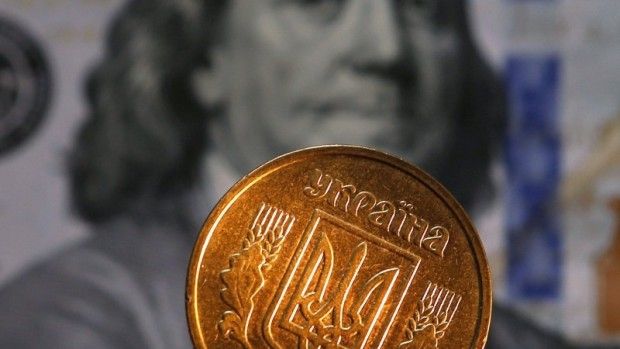
The next tranche of the IMF should strengthen the hryvnia. While the national currency feels insecure, its creeping decline continues. The experts have different opinions regarding the reasons for the depreciation of the Ukrainian currency. According to MP Viktor Pynzenyk, the depreciation is caused by the active budget payments in December last year when the government’s treasury account shrank by UAH 39 billion.
Ex-deputy head of the NBU Oleksandr Savchenko said that it’s the Russian banks who stand behind the weaker hryvnia, as they massively purchase the dollar in the Ukrainian market. According to him, the National Bank has to impose restrictions, not to allow foreign banks from a particular state grabbing a share of more than 8% in the Ukrainian banking system.
Inna Zviagintseva, the analyst at Adamant Capital investment company, believes that the growth of the dollar rate against the hryvnia was a result of retailers converting into foreign currency their excess proceeds in hryvnias during the Christmas holidays.
Economist Andriy Blinov explained the negative fluctuations with the lack of communication on the part of the state authorities over the state of affairs in the foreign exchange market.
"The silence of the National Bank, the government, the president, and the few things they say (along with the situation on world commodity markets) only spark bad thoughts and expectations," he said.
Meanwhile, some “communication” came from Gontareva who spent the whole week in Davos. She claimed that it’s the state employees and pensioners who panicked and started furiously spending their December payments, who are to blame for the hryvnia depreciation.
Exchange of blows
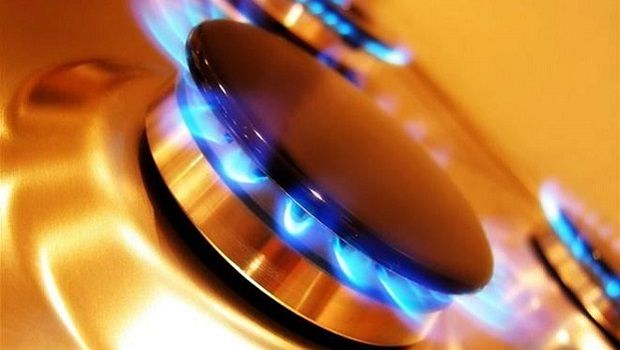
Last week, Ukraine and Russia exchanged blows on the gas front. First, Gazprom claimed $2.5 billion from Ukraine’s Naftogaz for shortage of gas purchase in the third quarter of 2015 on take or pay conditions. The Ukrainian Antimonopoly Committee for the first time adopted in response a truly historic decision to fine the Russian monopoly a total of $3.4 billion.
The ACU of Ukraine has conducted an inquiry into Gazprom activities since April, 2015, upon the request of the prime minister. Until now, the officials tended not to comment on Gazprom issue. However, after an unexpected invoice came down from Moscow, they decided not to pull the cat's tail and announced the fine.
"It is extremely confusing," Gazprom said in a follow-up to the ACU statement.
There is nothing left except confusion for Gazprom. Russia is being defeated in the gas battle with Ukraine. The "blue fuel" used to be a threatening weapon in the hands of the Kremlin. Now this strength is multiplied by zero. Even amid a cold snap this winter, Ukraine refused to buy Russian gas.
"In January, this [purchase of gas from the Russian Federation] is unlikely. We will be considering this issue closer to late February. It depends on the volume that we can pump from storage. Today, we can raise 120-130 million cubic meters, that is, we still have enough reserves," said the Minister of Energy and Coal Industry Volodymyr Demchyshyn.
By the way, Ukraine unilaterally increased the price of transit of Russian gas to the EU by 50%. Now the rate is $4.5 per 100 kilometers.
However, Russia still has illusions of punishing our country with Nord Stream-2 that can actually kill the Ukrainian gas transportation routes. But there has been a growing number of opponents of this idea across Europe. Last week, the European Parliament adopted a highly important resolution, calling on the EU member states to prevent the construction of Nord Stream-2.
The blockade continues
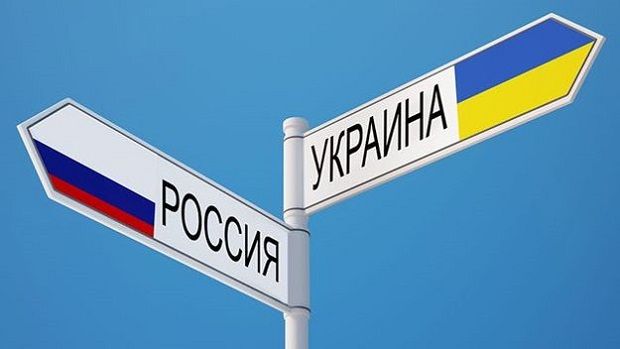
In response to the continuing blockade on the part of Russia of the Ukrainian transit, Ukraine’s Cabinet decided last week to expand the list of the embargoed Russian food products to 70 items from 30.
"We are expanding the list of [embargoed] foodstuffs - it's ketchup and sauces, fish and confectionery products," said Ukraine’s Trade Representative Natalia Mykolska.
This decision is an adequate response to the aggressor state, as all 25 checkpoints across the Ukrainian-Russian border have been closed to our exports to Asia. According to Minister of Economic Development Aivaras Abromavicius, Ukraine used to supply $1.8 billion worth of goods in this region.
One of the solutions to the problem is transit through Belarus. There are two checkpoints (one for trains and one for trucks) on the Belarus-Russia border for the Ukrainian goods, but these points are notorious for frequent delays, exporters complain. In addition to the loss of time, the companies increase their costs up to 50% due to a 500km detour.
Another option of bypassing the Russian territory is the sea route. Ukraine has already made the first steps to establish a new “Silk Road.” However, it’s too early to speak of the benefits of this path, according to Ukraine’s PM Arseniy Yatsenyuk.
“I'll be honest, the first phase - is expensive,” Yatsenyuk said. “But if we load the train and increase the volume of traffic, we will get the same logistics cost, as before the introduction of the transit ban by Russia."
While searching for alternative routes, Ukraine will also defend in the World Trade Organization its right for transit through the Russian territory. An important trump card in the dispute is the fact that Ukraine has no plans to ban the transit of Russian goods through its territory.
Begone, corruption and conspiracy
Last week, the prime minister spoke again about the most painful theme for the Ukrainian society - the fight against corruption. At a government meeting, Yatsenyuk gave an example of one of the tenders worth UAH 480 million of funds allocated under the Kyoto Protocol.
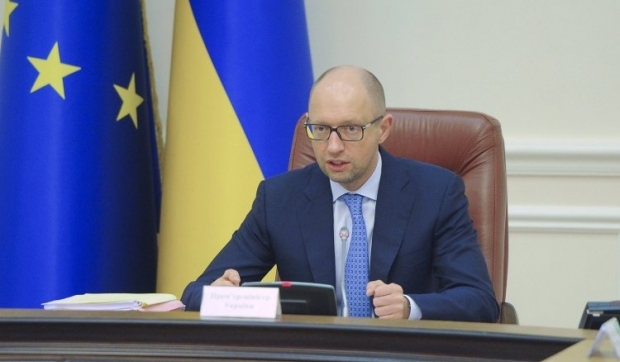
"I have instructed the State Fiscal Service to check the tender… The SFS reported that the company was fictitious; its director was a dummy, while the founder who signed the protocol on the participation in the tender said that he had not signed any protocols… So, $400 million would have been stolen had we not reacted swiftly," said Yatsenyuk, urging the Anti-Corruption Bureau to open a criminal investigation in respect of this tender.
The prime minister noted that the Cabinet was ready to cooperate with the Bureau in this inquiry.
Yatsenyuk went on to accuse a Russian businessman Konstantin Grigorishin, owner of significant assets in Ukraine, of financing the anti-Ukrainian forces, as well as claimed links with the Russian FSB [former KGB] security service.
"They [the Russian oligarchs] have been stealing money from the budget, and then financed primarily the anti-Ukrainian political forces and report to the FSB. For example, that’s what a citizen of the Russian Federation, [Konstantin] Grigorishin does, who has been grazing in the Ukrainian energy field for the past ten years. He clearly is an [FSB] asset," said the prime minister.
By the end of last week Yatsenyuk, drew public attention to the oil market. He called a meeting to demanded that the head of the Antimonopoly Committee find out whether there had been evidence of price collusion, launch an inquiry, as well as "help establish fair and transparent rules of the game in the oil market, exclusively with the market methods."
During the meeting, Yatsenyuk said that he had instructed a week ago Ukraine’s Energy Minister Volodymyr Demchyshyn to hold a meeting with the operators of the market of petroleum products, in order to introduce market-based approach in calculation of prices of petroleum products in the retail network. But, apparently, the minister has failed. The oil price has fallen by $10 within this week, while the cost of oil products has not.
Head of the Antimonopoly Committee Yury Terentyev assured that he will conduct an investigation and publish the results in the second half of February.
The prime minister gave another order the State Service for food safety and consumer protection to analyze the quality of petroleum products at gas stations in Kyiv and across Kyiv region, and then within two weeks – across the country. Time will show whether this will help improve the poor quality of fuel at the Ukrainian gas stations.
Vitaliy Chuiko (UNIAN)

